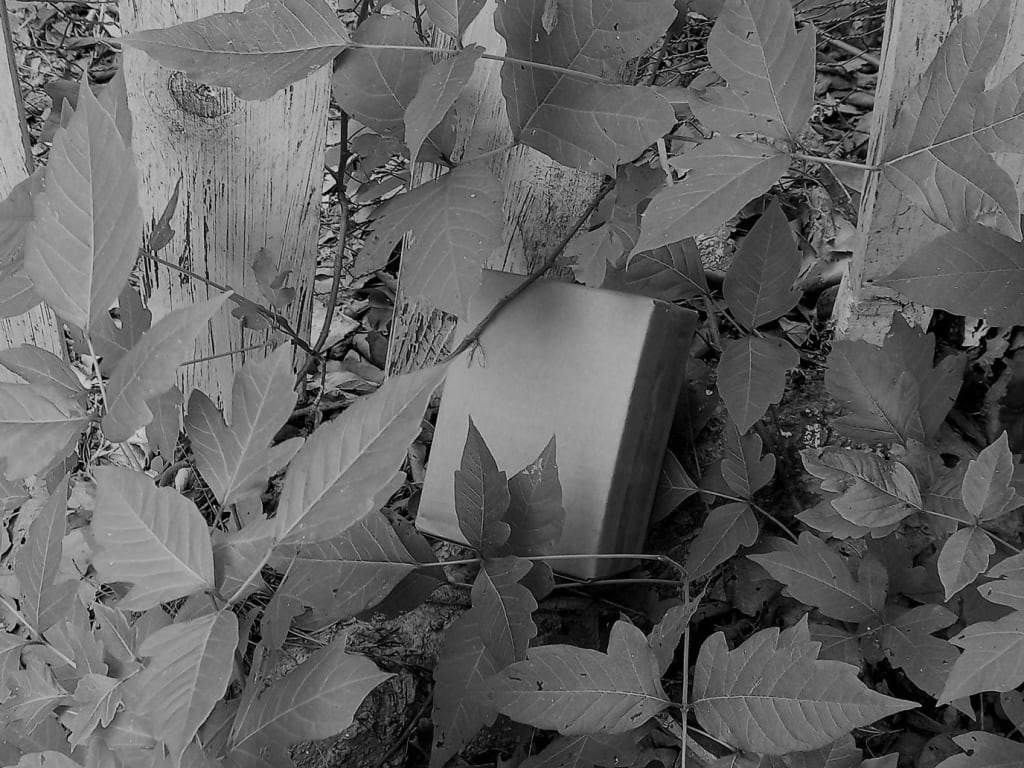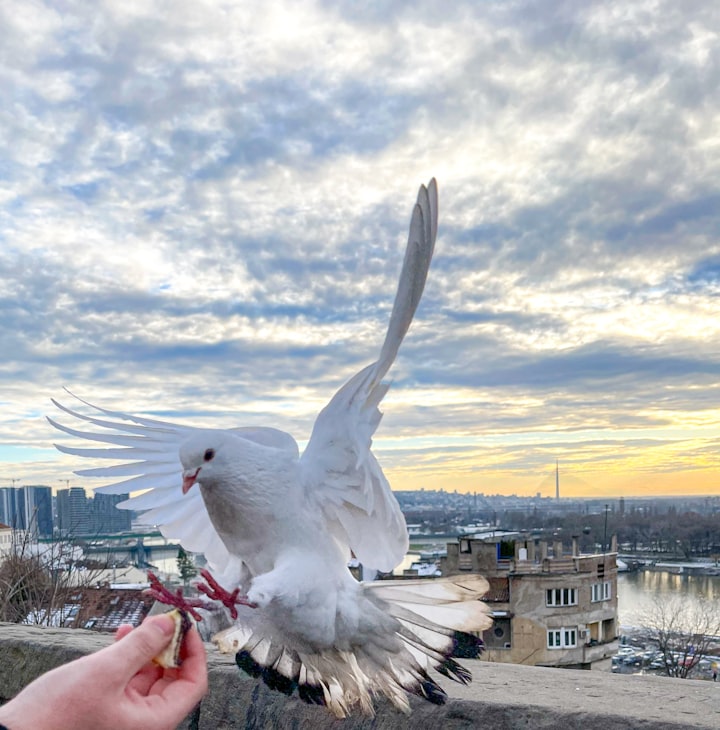
Julia wearily trudged to the victory garden in the back yard of her childhood home. An only child, she’d inherited the place when her parents died in a car wreck the previous year.
Food rationing had begun in the spring of 1942 and most commerical crops and canned goods were sent to the military overseas. With so many Americans serving in the various branches of the Armed Forces, labor and transportion shortages made it difficult to harvest and transport crops.
Like millions of Americans, Julia considered it her patriotic duty to assist in the war effort by planting all her favorite vegetables; beans, carrots, tomatoes, squash and cucumbers. She even planted turnips which she loathed, but gave to her elderly neighbors who enjoyed them.
She had changed from her professional attire of skirt, blouse and serviceable brown Oxfords to overalls and work boots. As she often did when upset, Julia pulled her father’s plaid shirt out of the closet to wear beneath the overalls and bound up her hair with one of her mother’s scarves. Back and forth she went from the house to the garden carrying two water-filled wooden buckets at a time. No vegetables were ready to be harvested, so at least she wouldn’t be scrubbing dirt from beneath her fingernails tonight.
***
Tending to the garden had become a challenge due to her busy schedule as a reporter for the daily newspaper in the small Texas town of Denville, but if Eleanor Roosevelt could plant a victory garden on the White House lawn, then Julia could do her part.
She’d even filed a story in the Denville Chronicle informing people of the best methods to grow fruits and vegetables; along with directions on using pressure cookers for canning.
Julia’s parents had been avid readers and she inherited their love of the written word as a small child. Her father encouraged her to read snippets of stories from major newspapers at the dinner table, which led to her desire to become a journalist.
She went to work for the Chronicle right after high school graduation. Her initial assignments consisted of community activities which included everything from births and weddings to high school graduations and rodeos. She also had the responsibility of writing obituaries; a job she despised. None of it was what she had in mind when she imagined one day becoming a top-notch reporter for a major newspaper.
After the Japanese attack on Pearl Harbor, two reporters volunteered for the Navy and her role at the paper changed dramatically. She filed all the war stories sent through the wire services. She wrote about local enlistments into the Armed Forces, blackouts, rationing, war bonds, politics, the way spotters were trained to identify enemy aircraft and much more to keep the residents of Denville informed.
She eagerly read stories filed by the many war correspondents reporting from overseas, in particular those of Margaret Bourke-White, the first woman photojournalist hired by Life.
Twice her stories were picked up by the San Antonio Express. The first involved former classmates, Ruthie Mitchell and Virginia Adams who moved to San Antonio and shared a small house with three other women. They all worked at Kelly Field maintaining the warplanes so crucial to winning the war. San Antonio’s version of Rosie the Riveter, these women were called Kelly Katies. After the big city newspaper published the story the mothers of Ruthie and Virginia stopped by the paper to give her hugs and take her to lunch at Buddy’s Diner. A crowd gathered around the table to read the story and congratulate her. It wasn’t long before even Buddy, the grumpy owner and cook, stubbed out the cigarette which perpetually dangled from his lower lip and brought her a piece of pecan pie on the house. While uncomfortable with all the attention, like most reporters living off of paltry wages, she appreciated free meals and she did love pecan pie.
The second story featured Julia’s Uncle Ralph, an instructor at the Advanced Flying School at Brooks Field. He received approval from the commanding officer to take her up in a trainer. A fighter pilot during World War I, he thrilled her with a hair-raising flight over the surrounding countryside. Julia, her long chestnut hair whipping about her face beneath the leather flight helmet shrieked with laughter the entire time.
***
After finishing watering the garden, Julia turned one of the buckets over and carefully eased her bottom onto it before performing an increasingly frequent ritual. She plucked at her father’s shirt and rubbed her other hand over her mother’s scarf.
The day had been tough on her emotionally. News of Denville’s first war casualty had arrived at the paper by word of mouth that morning. The dreaded telegram had been delivered to the Morales family shortly after dawn. Denville only had one high school and Roberto Morales graduated in 1938; the same year as Julia. They became close friends working together on the school newspaper.
She interviewed Roberto when he volunteered for the Army after the attack on Pearl Harbor. As a first generation American he was proud to serve his country and eager to take the fight wherever it led him.
Apparently it led him to a beachhead in Italy. General Dwight Eisenhower had announced the surrender of Italy to the Allies, but shortly thereafter those back home heard the news that the Fifth Army suffered many casualties in a beach landing at Salerno. Nothing official had yet made its way to Texas, but Julia knew Roberto served in the Fifth Army.
Julia thought of the back yard as a connection to her parents. She had so many happy memories of them from the time she was a small child right up until they died.
“Mom and Dad, I try to be professional and strong and I think I did that today, but this hateful war. This selfish, bitter waste.
It’s Roberto. Roberto! Remember how he’d make y’all laugh when he’d come over with his girlfriend, Elena?
Funny shouldn’t be dead. Funny should never be scared or shot in the head or blown up on a beach! Funny shouldn’t leave behind a mother with a heart squeezed so tight by crepe until it can barely beat. Damnit! Funny should just get to be funny.”
Julia lowered her face into her hands and began sobbing. After a bit she raised her head and wiped her streaming eyes with the back of her hands. She gave a shaky laugh and said, “Thanks for listening. I always feel better after talking to you. I miss you.”
She stood up and glanced over at the picket fence that separated the yard from an overgrown woodsy area. Something out of place caught her eye. She walked toward the object, making a mental note that the paint on the fence was flaking and she would have to find some time to paint it.
“What’s this?” Julia reached into the foliage and pulled out a box wrapped in brown grocery paper. “It doesn’t weigh anything at all.” She shook it and couldn’t hear anything. “Very peculiar.” She looked around, but didn’t see anyone.
Julia placed the box under one arm, grabbed the buckets and headed back to the house. She tossed the box on the kitchen table, fished a sharp knife out of the utensil drawer and sliced it open.
“What am I supposed to make of this?” She picked up the piece of paper that was the only thing inside the box. Handwritten on the paper were the words I’LL BE SEEING YOU.
“Who wrote this? And why? Is it for me?” Once again she looked around as if expecting someone to be there to answer her questions. She shook her head and headed to the back of the house.
She ran a bath in the claw foot tub and gratefully sank into the soothing warm water. An hour later the water had cooled, she was shivering but still in the tub pondering the box and its mysterious message. As she finally stepped out of the tub and began to towel herself off she realized something.
“I haven’t thought about Roberto or the war since I found that box.”
Julia burst into tears and ran to her bedroom. She cried herself to sleep that night.
The next morning, Julia put the box in the dining room credenza that her mother had loved. Out of sight, out of mind. She didn’t have time for meaningless puzzles although she did ask her neighbors if they had seen anyone hanging about her yard. None of them had.
She kept reporting on the war, but despite her intentions to forget the box, she found herself no longer ending an encounter with a “goodbye,” but rather an “I’ll be seeing you” and then carefully observing the other person for a telltale reaction. At times she’d hum the song in the hopes of catching a person off guard. Her new mannerisms became a part of her life as the war seemed to drag on forever.
On May 8, 1945, Julia was finally able to write the headline NAZI GERMANY SURRENDERS TO THE ALLIES. She’d been longing to write those six words for almost four years. The war wasn’t over yet because of Japan, but it was a start.
Despite her hectic schedule Julia still managed to tend to her garden. One scorching July day as she bent over pulling weeds, a car horn startled her. She stood and shading her eyes with a grubby hand saw a big man in an Army uniform approaching.
As he got closer, she recognized him and clomped across the yard as fast as her work boots would allow. Upon reaching him, she threw herself into his arms and shouted, “Hank! You’re here!”
“I told you I’d be seeing you.”
“You! But why?” She punched him on the arm. Hard.
“I had a couple of reasons. I doubt you remember, but I left town for basic training the day after Roberto died. I was terrified the same thing would happen to me, but I quit being so scared when I thought about how sad you must have been. When you were seniors I was a lowly freshman, but even then I could see how close the two of you were and I came up with something that I hoped would help you.”
“How was that supposed to help?”
“Did you spend some time trying to figure out who gave it to you?”
“So much time, you have no idea.”
“Did you feel a bit like Sherlock Holmes while searching for clues?”
Julia grinned, “I felt like Sherlock Holmes and Hercule Poirot.”
Hank grinned back. “Not Miss Marple?”
“Just because I’m four years older than you, doesn’t make me an old lady even if she is pretty good at solving mysteries. I never solved this one.”
“Did you sometimes forget about the war when you were trying to solve it?”
Julia stared at him.
“It turns out I did it for both of us, although that wasn’t my intention. I spent many nights, some with bombs exploding nearby, imagining you digging up the dirt on why a box had been left in your actual dirt. It was a silly spur of the moment idea, but it somehow helped me get through hell and back to Texas.”
“So are you saying it’s our song?”
Hank blushed and looked at his feet.
She grabbed his hand and said, “Come on, you idiot. Have a seat in the parlor while I clean up and then let’s go grab a beer at Ollie’s. You can drop a coin in the jukebox. Just don’t play I’ll Be Seeing You.
About the Creator
Kat Nove
I'm a native Texan who would rather pour a colony of fire ants down my ear canal than listen to country & western music. Willie Nelson is the exception to this rule.
My website is https://babblethenbite.com/






Comments
There are no comments for this story
Be the first to respond and start the conversation.